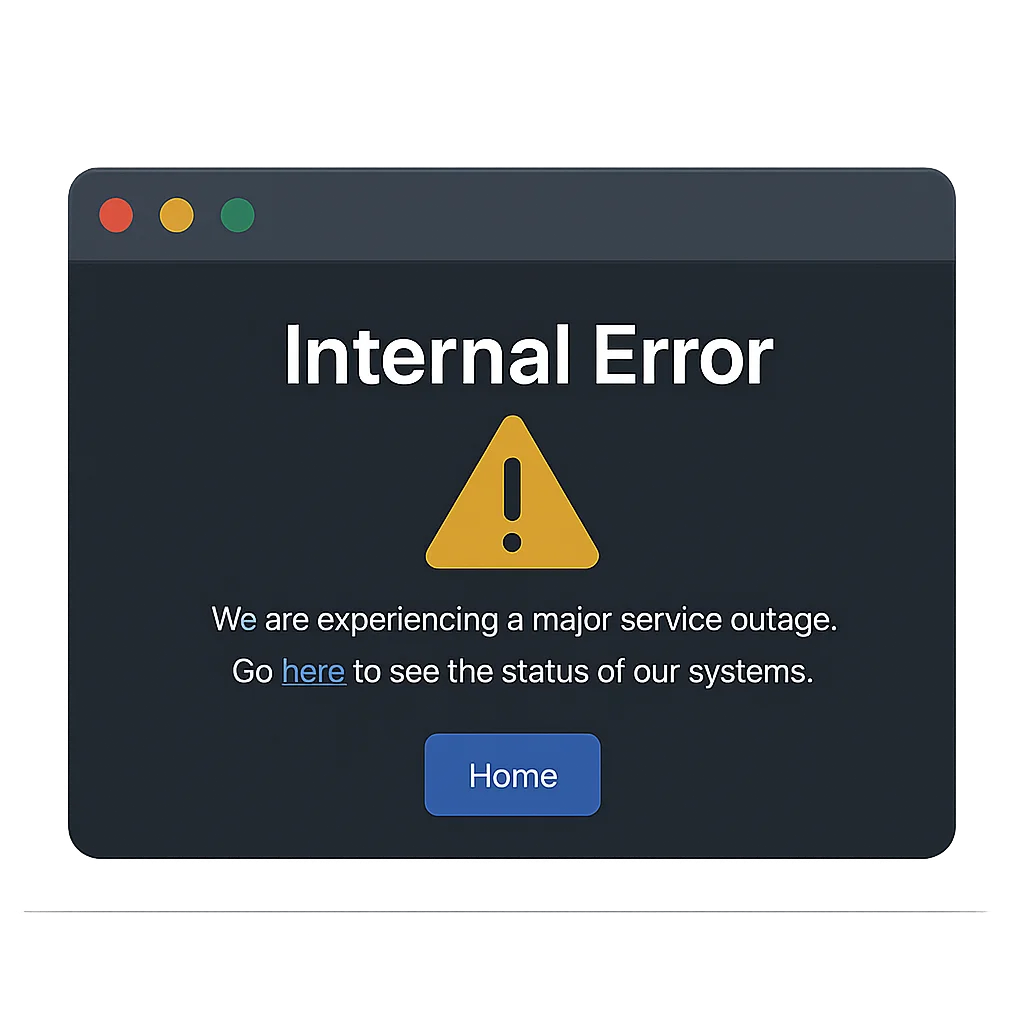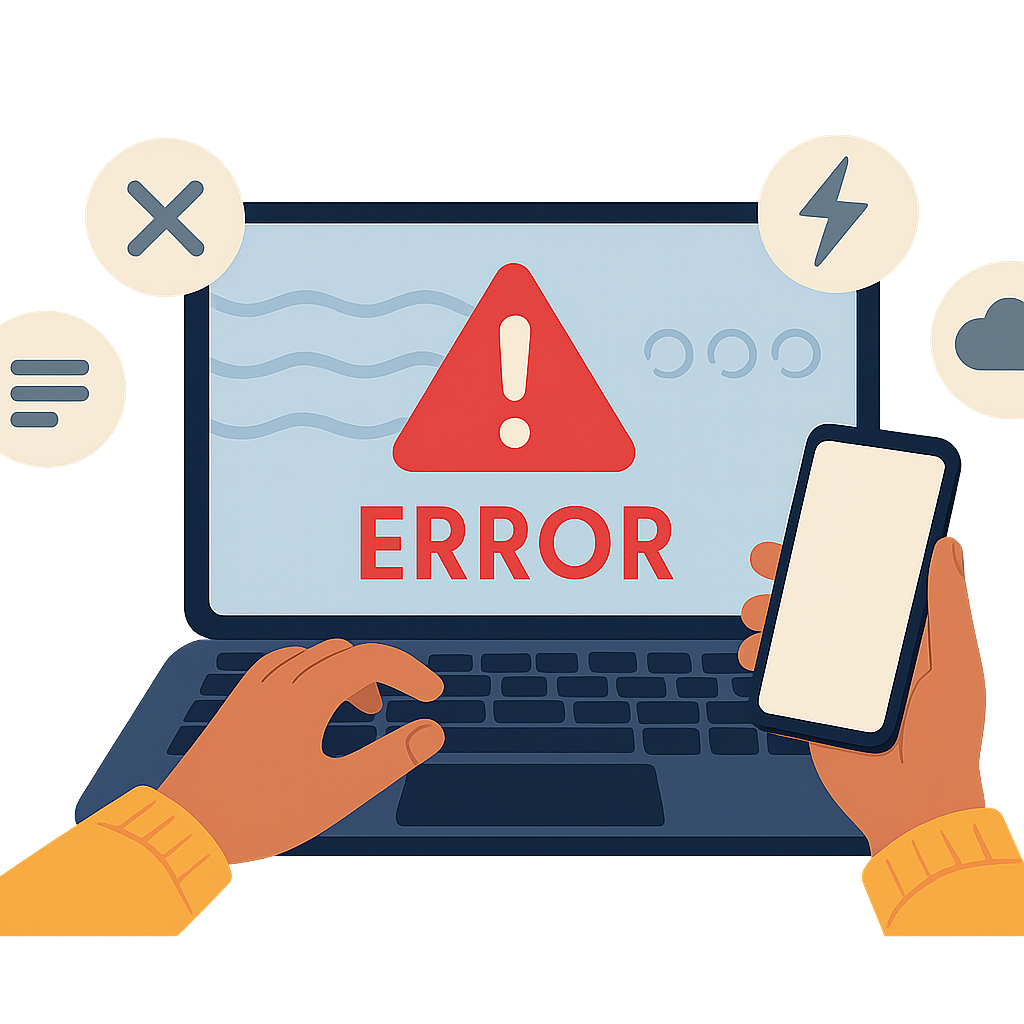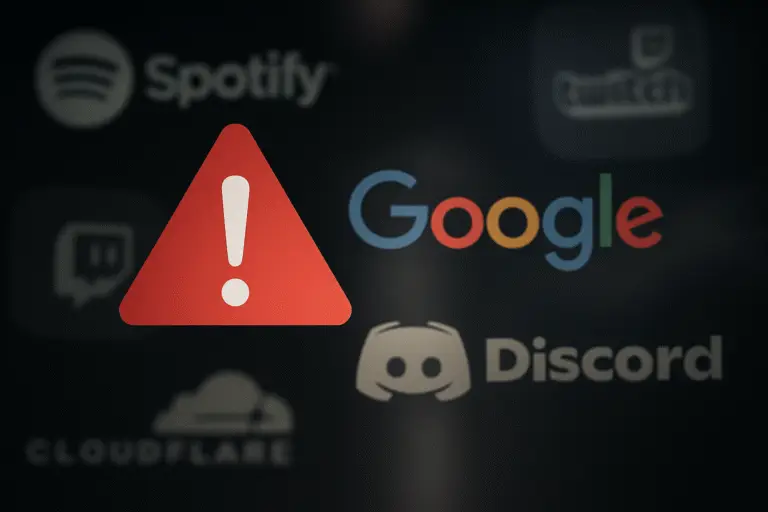On June 12, 2025, a massive internet infrastructure failure brought down dozens of major platforms including Google, Cloudflare, Spotify, and Discord around 2:30 PM ET. The widespread outage highlighted the fragility of internet backbone services, disrupting businesses, entertainment, and communication worldwide before services began recovering within hours.
A major internet outage on June 12 disrupted dozens of major websites and platforms—including Google, Cloudflare, Spotify, and Discord.
Users across the globe reported sudden access issues, error messages, and downtime.
Google services, Cloudflare, Spotify, AWS, Discord, and more were impacted.
Cloudflare confirmed a broad service disruption, now in partial recovery.
Platforms that rely on Cloudflare or AWS saw ripple effects.
By 3:30 p.m., some services had begun recovering, but intermittent errors remain.

A World Wide Internet Outage
At around 2:30 p.m. ET, users started noticing something was off.
Pages weren’t loading. Logins failed. Meetings wouldn’t connect.
Apps from Google Meet to Spotify to Discord all began reporting issues.
Down Detector lit up with spikes in error reports.
Major backbone services like Cloudflare and AWS were affected, causing disruptions far beyond a single site or app.
By 3:30 p.m., some services were coming back online, but many users still encountered slowdowns and errors.

Which Services Were Affected?
Platforms across entertainment, communication, ecommerce, and cloud infrastructure were all affected. According to Down Detector and user reports, the list included:
Google Meet – Video conferencing down
Google Cloud – Enterprise services affected
AWS (Amazon Web Services) – Infrastructure issues
Cloudflare – CDN and DNS failures
Discord – Gaming chat disrupted
Twitch – Live streaming affected
Snapchat – Social media down
Nintendo Switch Online – Gaming services offline
Rocket League – Gaming servers down
Disruptions to platforms like Shopify and AWS created ripple effects for businesses and ecommerce stores. Many tools used during the workday—like Google Meet and Calendly—also went down, leaving teams scrambling for alternatives.

Cloudflare Confirms the Infrastructure Outage
Cloudflare, which powers content delivery and DNS services for many popular websites, confirmed a widespread disruption on its status page.
They posted:
The issue appeared to stem from infrastructure-level errors—not a specific website failure. The widespread nature of the problem points to backbone-level instability that briefly brought down large chunks of internet traffic.
Was It a Cyberattack?
As of this writing, there’s no evidence that the outage was caused by a cyberattack or data breach.
Most reports suggest the issue originated from infrastructure failures, particularly with Cloudflare and possibly AWS routing layers.
A full postmortem will likely be shared by the affected companies soon.
Still, it’s a reminder of how much of the web relies on a handful of companies—and how fast things can go wrong when they do.
What to Do If You’re Still Experiencing Issues
If your favorite app or site isn’t working yet, here are a few things to try:
Clear your browser cache and cookies
Try a different network or device
Check real-time updates at Cloudflare’s status page or Down Detector
Wait for automatic recovery as systems stabilize
Most services are now recovering or back online, however performance may still be spotty for a while as systems reset and traffic normalizes.
Why Resilience Matters More Than Ever
Events like this make one thing clear: even the most reliable services aren’t immune to sudden failures.
For businesses and professionals, this is a wake-up call to build more flexible systems—tools that work even when one provider doesn’t.
Having backups, local copies, and alternate communication methods can help avoid total shutdowns during outages.
It’s not about paranoia—it’s about being ready when the unexpected happens.
This wasn’t an isolated incident—similar widespread disruptions have affected major platforms before. Just days earlier, ChatGPT experienced its own global outage, highlighting how dependent we’ve become on digital infrastructure that can fail without warning.

Frequently Asked Questions
Not The First Time, Not The Last
This wasn’t the first time core internet infrastructure buckled—and it won’t be the last.
Whether it’s a DNS outage, a cloud provider issue, or something bigger, today was a reminder that even the most reliable platforms are still vulnerable.
For most users, services are already coming back online.
But the impact today made one thing clear: the internet may be everywhere, but it’s held together by just a few key players.
Thanks for reading!
If you found this helpful, like it, share it, and check out more of our content.
About The Author
Nikolas V.
Deviate Solutions LLC
I’ve spent years navigating computer science, digital marketing, business development, and day trading; chasing entrepreneurship and independence. Now I help businesses grow and expand through the latest technology and industry strategies. With all I learn and experience, I use my platform to break down complex insights so you can think differently about technology, your business, and your finances. Everything I share comes from real experience and plenty of trying and failing. Failure is part of the game. Always take the shot, Let’s learn to win together.
Get In Touch






